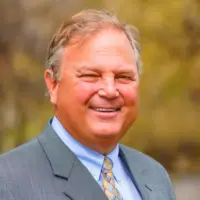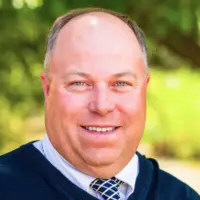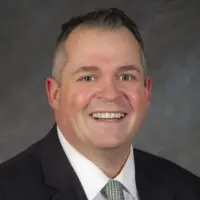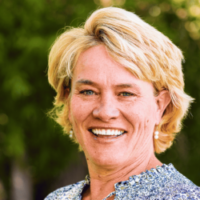About VOA – Outpatient Services
The outpatient services of Volunteers of America (VOA) in Torrington, Wyoming is a CARF accredited facility that is dedicated to supporting individuals and families in overcoming substance use disorders and mental health challenges. This nonprofit and compassionate center fosters recovery through evidence based and personalized care in a non judgmental environment.
They serve adults, adolescents and seniors across Goshen County. Payment options include Medicaid, Medicare, and a sliding fee scale.
Flexible Care With Specialized Programs
The facility offers outpatient addiction therapy which allows you to maintain your daily routines while receiving treatment. The services they provide includes medication assisted treatment (MAT) with methadone, buprenorphine or naltrexone for opioid and alcohol addiction.
I like that their specialized programs include gender specific care for men and women, age appropriate treatment for teens and tailored support for veterans addressing combat related trauma. They use evidence based approaches like cognitive behavioral therapy and motivational interviewing to ensure comprehensive care for co-occurring disorders such as depression or anxiety.
Additional Services For Effective Treatment
Additional services include anger management and telehealth options for accessibility. VOA also provides intervention services to assist families in encouraging treatment.
The clinic supports diverse populations by offering sign language services and court ordered treatment programs. Reviews praise the supportive staff and effective dual diagnosis treatment, though some note occasional scheduling issues.
It’s important to find new activities to enjoy to support your recovery from addiction. A few options you can consider in between your treatment sessions is visiting the Homesteaders Museum or taking a walk at Adam Walter Memorial Botanical Park.
Latest Reviews
Rehab Score
Accepted Insurance
Other Forms of Payment
Private insurance refers to any kind of healthcare coverage that isn't from the state or federal government. This includes individual and family plans offered by an employer or purchased from the Insurance Marketplace. Every plan will have different requirements and out of pocket costs so be sure to get the full details before you start treatment.
Self-pay involves paying for treatment out of your own pocket. You can use savings or credit, get a personal loan, or receive help from family and friends to fund your treatment. If you don't have insurance or your insurance plan doesn't cover a specific program, self-pay can help ensure you still get the care you need.
Sliding scale payments are based on a client's income and family size. The goal is to make treatment affordable to everyone. By taking these factors into account, addiction recovery care providers help ensure that your treatment does not become a financial burden to you or your family, eliminating one barrier to care.
Medicare is a federal program that provides health insurance for those 65 and older. It also serves people under 65 with chronic and disabling health challenges. To use Medicare for addiction treatment you need to find a program that accepts Medicare and is in network with your plan. Out of pocket costs and preauthorization requirements vary, so always check with your provider.
Medicaid is a state based program that helps lower-income individuals and families pay for healthcare. Medicaid covers addiction treatment so those enrolled can use their coverage to pay for rehab. When a program accepts Medicaid the client often pays very little or nothing out of their own pocket.
Military members, veterans, and eligible dependents have access to specific insurance programs that help them get the care they need. TRICARE and VA insurance can help you access low cost or no cost addiction and mental health treatment. Programs that accept military insurance often have targeted treatment focused on the unique challenges military members, veterans, and their families face.
Addiction Treatments
Levels of Care
Outpatient Programs (OP) are for those seeking mental rehab or drug rehab, but who also stay at home every night. The main difference between outpatient treatment (OP) and intensive outpatient treatment (IOP) lies in the amount of hours the patient spends at the facility. Most of the time an outpatient program is designed for someone who has completed an inpatient stay and is looking to continue their growth in recovery. Outpatient is not meant to be the starting point, it is commonly referred to as aftercare.
Clients receiving care at an inpatient rehab are often seeking more intensive structure, support, and supervision than an outpatient program can provide. Clients temporarily live at the treatment center, engaging in multiple therapeutic sessions a day. Treatment typically involves extensive individual, group, and family counseling. Many facilities also prioritize recovery-focused life skills training to support sustained sobriety, and evidence-based holistic care, such as meditation and message, to alleviate stress and anxiety.
Intensive Outpatient programs are for those who want or need a very structured treatment program but who also wish to live at home and continue with certain responsibilities (such as work or school). IOP substance abuse treatment programs vary in duration and intensity, and certain outpatient rehab centers will offer individualized treatment programs. They provide Intensive Outpatient Programs (IOPs) and group counseling during treatment and recovery, helping the patient build knowledge and learn practical skills for recovery, healthier relationships and a happier life.
Clients engaged in 12 step programs receive ongoing and intensive peer support while cultivating spiritual, emotional, and psychological practices to facilitate recovery. Regular attendance at 12 step meetings, which are anonymous, free, and accessible both online and in most communities, is expected. Early in their recovery, participants select a sponsor to mentor them in their recovery. Religious affiliation is not required, but faith-based and other specialized formats are available.
Services offered by drug intervention programs often include specialists to assist with a drug intervention in Wyoming. Drug interventions are designed to encourage individuals who are struggling with addiction to get the treatment necessary for recovery. Friends and family can partner with intervention services to host an intervention and suggest a solid treatment plan to the individual. These services can also provide follow-up care for both the individual and family members.
Addiction experts rely on 24-hour clinical care in Wyoming during initial treatment of substance use disorders. This setting provides a full team of professionals on-site who can address the many physical, mental, and emotional issues that arise during this time. Medical staff can prescribe medications to alleviate withdrawal symptoms during detox, and professional counselors can provide mental health care.
Drug and alcohol addiction often takes a heavy toll on one's body. Over time, a physical dependence can develop, meaning the body physiologically needs the substance to function. Detox is the process of removing drugs and/or alcohol from the body, a process that can be lethal if mismanaged. Medical detox is done by licensed medical professionals who monitor vital signs and keep you safe, healthy, and as comfortable as possible as you go through detox and withdrawal.
Treatments
The goal of treatment for alcoholism is abstinence. Those with poor social support, poor motivation, or psychiatric disorders tend to relapse within a few years of treatment. For these people, success is measured by longer periods of abstinence, reduced use of alcohol, better health, and improved social functioning. Recovery and Maintenance are usually based on 12 step programs and AA meetings.
The programs offered at drug rehab in Wyoming address the underlying issues of addiction, with the goal being to get to the root of the problem. By learning to manage issues without substance use, you are empowered to live a healthy, drug-free life.
Many of those suffering from addiction also suffer from mental or emotional illnesses like schizophrenia, bipolar disorder, depression, or anxiety disorders. Rehab and other substance abuse facilities treating those with a dual diagnosis or co-occurring disorder administer psychiatric treatment to address the person's mental health issue in addition to drug and alcohol rehabilitation.
A combined mental health and substance abuse rehab has the staff and resources available to handle individuals with both mental health and substance abuse issues. It can be challenging to determine where a specific symptom stems from (a mental health issue or an issue related to substance abuse), so mental health and substance abuse professionals are helpful in detangling symptoms and keeping treatment on track.
Programs
Adult rehab programs include therapies tailored to each client's specific needs, goals, and recovery progress. They are tailored to the specific challenges adult clients may face, including family and work pressures and commitments. From inpatient and residential treatment to various levels of outpatient services, there are many options available. Some facilities also help adults work through co-occurring conditions, like anxiety, that can accompany addiction.
Young adulthood can be an exciting, yet difficult, time of transition. Individuals in their late teens to mid-20s face unique stressors related to school, jobs, families, and social circles, which can lead to a rise in substance use. Rehab centers with dedicated young adult programs will include activities and amenities that cater to this age group, with an emphasis on specialized counseling, peer socialization, and ongoing aftercare.
Clinical Services
Cognitive behavioral therapy (CBT) in Wyoming can occur in various formats. Common types of CBT include dialectical behavior therapy, acceptance and commitment therapy, mindfulness based cognitive therapy, and rational emotive behavior therapy. The main focus of each is to help participants change thought and behavior patterns.
Group therapy is any therapeutic work that happens in a group (not one-on-one). There are a number of different group therapy modalities, including support groups, experiential therapy, psycho-education, and more. Group therapy involves treatment as well as processing interaction between group members.
In individual therapy, a patient meets one-on-one with a trained psychologist or counselor. Therapy is a pivotal part of effective substance abuse treatment, as it often covers root causes of addiction, including challenges faced by the patient in their social, family, and work/school life.
Motivational interviewing helps you recognize the importance of change and your capacity to make change. It empowers you to change rather than providing warnings or directions to change. This method is often used in the treatment of substance use disorder.
Trauma therapy addresses traumatic incidents from a client's past that are likely affecting their present-day experience. Trauma is often one of the primary triggers and potential causes of addiction, and can stem from child sexual abuse, domestic violence, having a parent with a mental illness, losing one or both parents at a young age, teenage or adult sexual assault, or any number of other factors. The purpose of trauma therapy is to allow a patient to process trauma and move through and past it, with the help of trained and compassionate mental health professionals. Their highly specialized counselors help people recover from witnessing or experiencing violence, assault, crime, catastrophic loss, major accidents or other traumatic events.
Family counseling helps families improve communication, reduce conflicts, get through hard times, improve relationships and live more happily together. Peak Wellness Center offers family counseling as an independent service or in conjunction with other programs at their clinics, such as treatment of an individual family member for mental health or substance abuse issues. Their licensed counselors have special training in family dynamics and years of experience in family therapy.
Drug rehab in Wyoming typically includes multiple life skills activities. These teach you the skills you need for everyday life in recovery. Activities may include career coaching, social interactions, problem solving, and self care.
Holistic drug and alcohol treatment centers typically incorporate recreational therapy treatment to improve your physical and mental fitness and provide you an outlet to express your emotions and manage your stress. These activities also foster social connections to help you rebuild your life and maintain long term sobriety.
Amenities
-
Residential Setting
-
Private Rooms
Staff & Accreditations
Staff

Jeff Holsinger
CEO

Heath Steel
Executive VP & CBO

Doug Cherry
CFO

Courtney Green
CAO

Aimee Foster
CPO

Rebekah Law
Chief of Staff
Accreditations

The Commission on Accreditation of Rehabilitation Facilities (CARF) is a non-profit organization that specifically accredits rehab organizations. Founded in 1966, CARF's, mission is to help service providers like rehab facilities maintain high standards of care.
CARF Accreditation: Yes
Contact Information
501 Albany Avenue
Torrington WY, 82240




